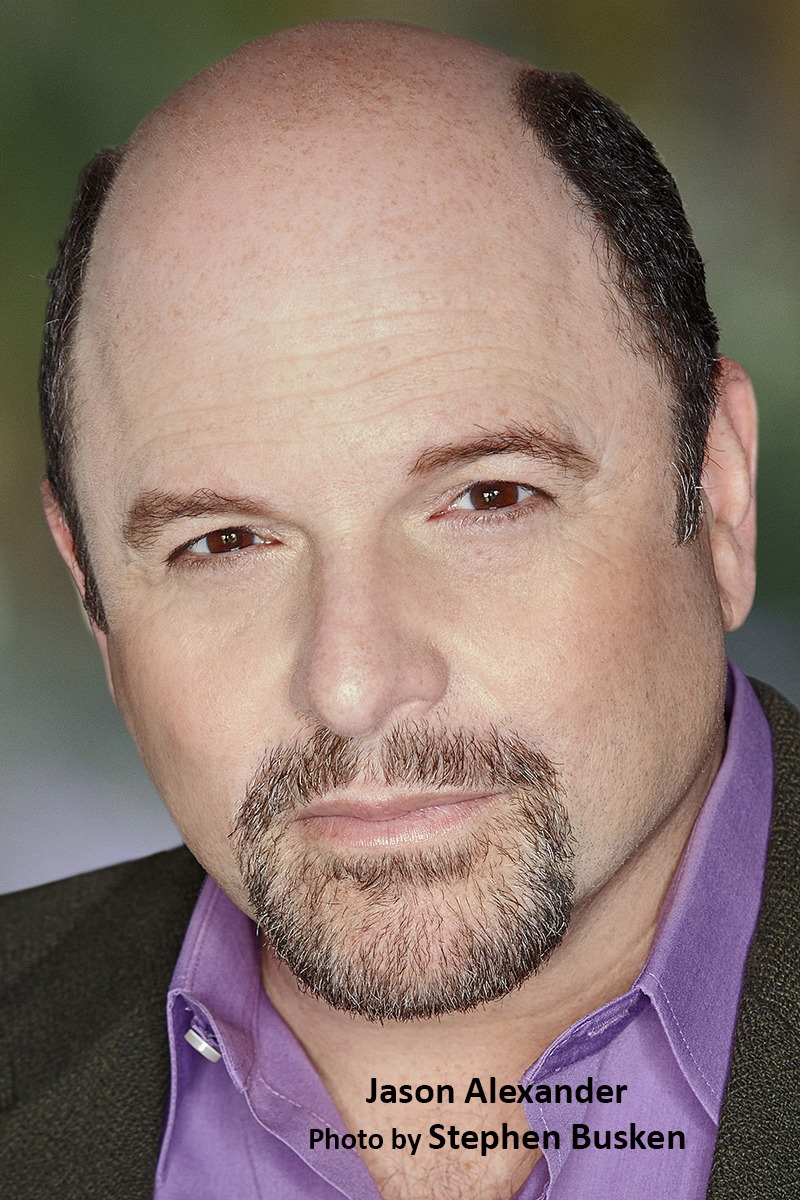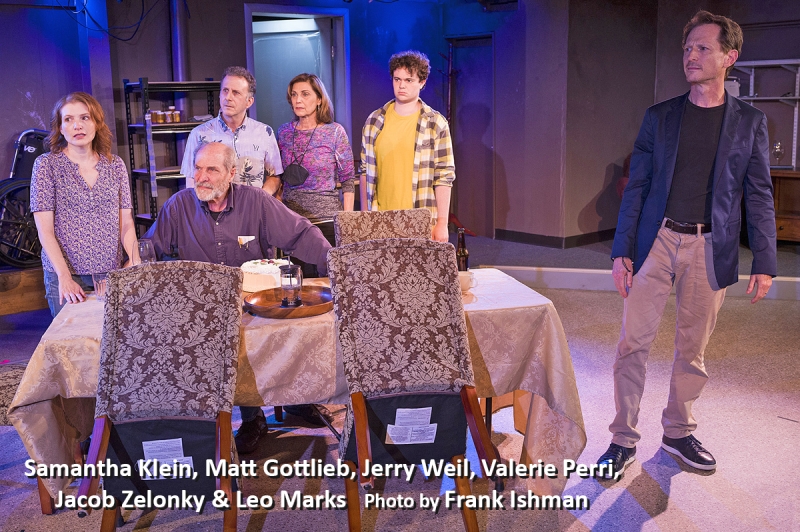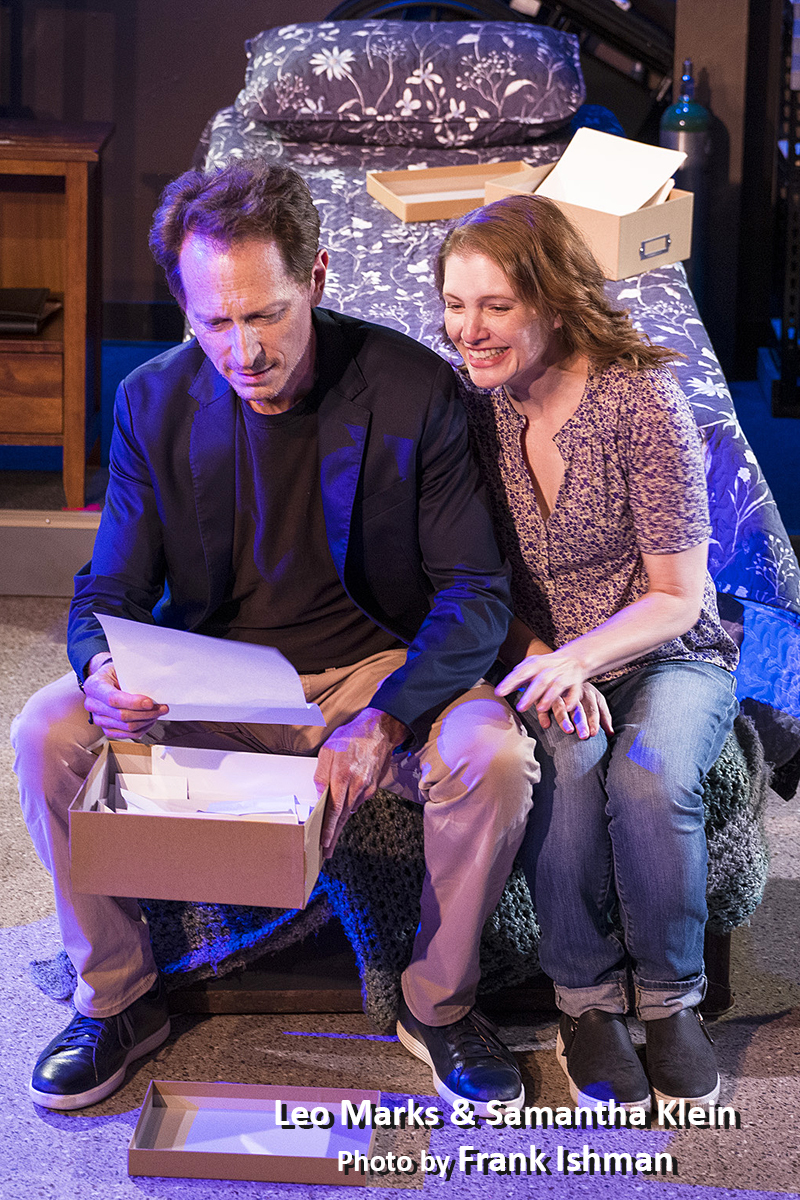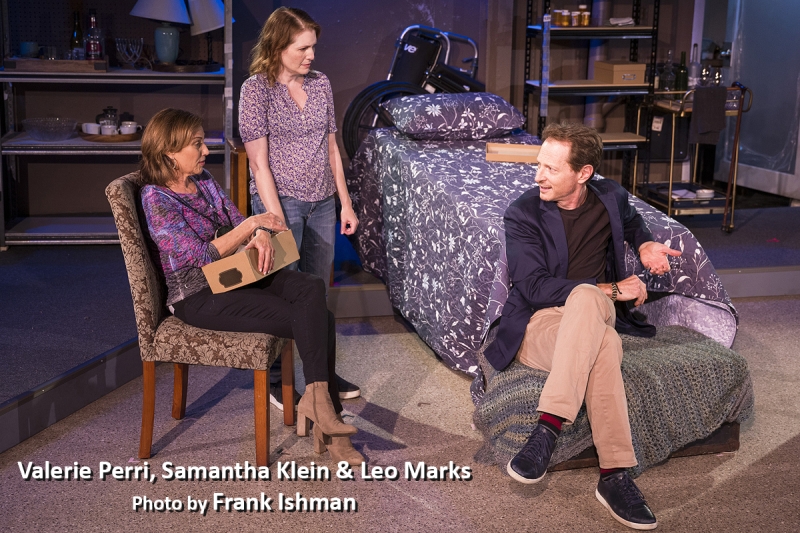Interview: Jason Alexander Never FORGETs His Tradition, His Friends Or His Fellow Artists
Next up at the Fountain Theatre, the L.A. premiere of Tony Award-winner Steven Levenson’s If I Forget beginning July 23rd (with previews starting July 20th)

Next up at The Fountain Theatre, the L.A. premiere of Tony Award-winner Steven Levenson's If I Forget beginning July 23, 2022 (with previews starting July 20th). Jason Alexander (also a Tony Award-winner) directs the cast of Síle Bermingham, Caribay Franke, Matt Gottlieb, Samantha Klein, Leo Marks, Valerie Perri, Jerry Weil and Jacob Zelonky. I had the opportune occasion to throw out a few queries to Jason, the well-known TV actor and respected L.A. Theatre community denizen.
Thank you for taking the time for interview, Jason!
What cosmic forces brought you and Steven Levenson together for this world premiere at The Fountain Theatre?
Rabbi Daniel Bouskila saw the production at Roundabout Theater and began trying to find a venue for it in Los Angeles ever since. He finally found a theater that shared his passion for it in the Fountain Theater. The Fountain has a long history of doing rather exquisite work with superior actors. It does so in a very small theater assisted by truly talented and dedicated theater artists. I've been doing a lot of directing lately with some interesting projects headed toward Broadway and I've a good history of directing here in Los Angeles. But I was relatively unaware of the Fountain, sad for me. Yet somehow, Stephen Sachs, who runs the theater, must've gotten the idea in his head that I'd be right for this piece and was kind enough to invite me along. I read the play and I was hooked.
What would your three-line pitch for If I Forget be?
A family dramedy deeply rooted in Jewish humor and Jewish issues but with universal themes and very modern conflicts. I also tend to refer to it as the Jewish August Osage County.
How relatable to you is If I Forget?
Immensely relatable, which is probably why I found it irresistible. I completely recognize the characters in this play. They come from my family, my neighborhood while growing up and from the stories my family shared. The social and political themes are ones we have debated in my own circles. The play is notable for some of the discussion of American Jewry and the relationship between Jews, America and Israel. But at heart, it is a story about a family struggling. It is the age-old issues of children and parents and how hopeless and helpless those relationships can sometimes be. If you are in a family, you will recognize some part of yours in this play.
You've done a lot of work in the Los Angeles Theatre community. Have you worked with any of If I Forget's cast or creatives before?
 Excitingly, everyone is new to me - cast and crew. Valerie Perri and I are both Jerome Robbins veterans, but we never did the show together. And other than that, we are all new to each other. I was directing another play on the east coast until a week before we began rehearsals. So, I specifically asked the theater to hire a creative team that they knew and who understood the glories and challenges of their space. And it has been a wonderful collaboration with everyone.
Excitingly, everyone is new to me - cast and crew. Valerie Perri and I are both Jerome Robbins veterans, but we never did the show together. And other than that, we are all new to each other. I was directing another play on the east coast until a week before we began rehearsals. So, I specifically asked the theater to hire a creative team that they knew and who understood the glories and challenges of their space. And it has been a wonderful collaboration with everyone.
As active as you are in the Los Angeles Theatre community, you must have previously crossed paths with Fountain Theatre's producing director Simon Levy? Is If I Forget the first chance you've had to collaborate with Simon?
You assume too much. Simon and I had not really met before this. We may have passed each other at the concession stand at intermission, but we have never worked together before. And he is wonderful.
I've seen some earlier Tony Awards broadcasts and noticed how different a broadcasted scene from a show was from what I've seen live in a theatre. What would you tell a directing newbie the difference in directing for television vs. live stage?
That it is very hard to capture the experience of theater with cameras. The live audience does two things simultaneously - they take in the moment as a whole, wide, vast image and they choose where they focus at any given moment. In theater you must call to and capture the attention of the viewer. You must earn it. But with a camera, the director has to select the exact portal the piece will be seen through. And everything they exclude or that doesn't fit in the frame is not in the viewer's experience. I would also say that when you choose a moment from a play to convey the essence of a show or a highlight of a show, you are doing it without any context for the audience. It may be the pinnacle moment in the play, but the play has worked the audience to that moment. When you just dump that moment on an audience, without context, you can have no reasonable expectation of affecting them in the way the play was intended. So, do your best. Know it is just a commercial. And then go back to the theater.
 Do you have a preference to directing television or directing theata?
Do you have a preference to directing television or directing theata?
They are completely different creatures and require almost completely different skills. Television is a bit of a factory - at least the things I've been blessed to direct. They are series. They have been established. The actors know the roles, if not the exact moments of a particular script. The crew has a "format" or "style" for how they capture the show. You direct by trying to be helpful and efficient to everyone. Help an actor find something exciting or engaging for themselves. Design a bit of a challenging but rewarding shot. But do it on time and on budget and don't make waves. In the theater, you have time. You start with words on the page and nothing more. The director must be the genesis for imagining all that will follow - the sets, costumes, lights, props, action, movement, timing, sounds. You are at the hub of it all - collaborating with the best artists you can gather and trying to excite and elicit each other's best work. Far more engaging, far more challenging and more often than not - far less lucrative. But very, very satisfying.
What gives you more gratification: Being in front of the camera yourself? Receiving a standing ovation at your curtain call? Or being off stage watching your cast get their props and adulation?
If you had asked me 30 years ago it would be being seen - being seen as doing good work and taking some joy from the reception of it. But for the last 25 years or so, I have reveled far more in collaboration and community. The joy of engaging with my fellow artists and exploring the work together. Even when I'm acting, I find the rehearsal and the discovery more satisfying than the performance of the discovery. Although in the theater, the ability to perform repeatedly leads to new discovery. It no longer matters to me which function I serve as long as I am serving this community. Being of value to my fellow artists and the audience in any capacity. That is the joy.
What do you remember of the night where they announced your name as winner of the Tony Award for Best Leading Actor in a musical for Jerome Robbins Broadway?
It was surreal. When I was a kid dreaming of a career as an actor, it was all about getting to Broadway. I realistically thought it would take me decades to achieve that. But I made my Broadway debut when I was 20 years old. The ultimate dream was to win the Tony. I had no realistic expectation of that. And yet, suddenly at the age of 29, I was achieving that unimaginable dream. And it was glorious, and I am grateful. But I also learned something that night. No award changes anything important in your life or your art. I was not suddenly a better person or a better actor. I was not suddenly more valuable to anyone. And I wasn't suddenly transformed into the person I imagined I would like to be. Doing work that is good enough to be noted as special and spectacular or even singular - that is the reward. The admiration and fellowship of your colleagues - that is the reward. Being offered opportunities - that is the reward. The satisfaction of and connection to your audience - that is the reward. The statue - all the statues - are markers of being the lucky person at the right time in a good thing. There are always others equally deserving of that award. But if you are always worthy of those other rewards, you have earned more than all the statues in the world.
Tell us about the very first Broadway audition you nailed.
 I don't know if I remember the first time I thought I had "nailed" something. But I can tell you the time it made me crazy. When I auditioned for Neil Simon's Broadway Bound, I knew it was the opportunity of my career. And I also felt genuinely perfect for that role. It played to all my strengths at the time. I prepped that audition like a crazy person. When I read, both Gene Saks the director and Neil Simon were present. And I was lucky enough to read with Jonathan Silverman who was already cast as my brother. It was the audition you dream about. I got every laugh. Jon and I bounced off each other like real brothers. It was as if we had rehearsed for weeks, and we were doing a cold reading. Gene and Neil both came over to shake my hand and thank me. I left the audition and called my agent and said, "I got it." A week later, I was asked to come back and read again. I went cold. I kept asking why? What did I miss? What did I do wrong? What were they looking for? And all I kept hearing was, "they just want to have you come back again." I tortured myself trying to think of what I had missed. I went back. And the callback went very, very well but it wasn't quite the same magic as the first time. I left, unsure if I was going to get it. But I did. Eventually, my curiosity got me, and I asked Gene Saks what I had missed at the first audition that made him want to call me back. He said, "It was so spectacular we wanted to make sure it wasn't a fluke. We had to know you could do it again." And I almost freaked myself out to the point where I didn't.
I don't know if I remember the first time I thought I had "nailed" something. But I can tell you the time it made me crazy. When I auditioned for Neil Simon's Broadway Bound, I knew it was the opportunity of my career. And I also felt genuinely perfect for that role. It played to all my strengths at the time. I prepped that audition like a crazy person. When I read, both Gene Saks the director and Neil Simon were present. And I was lucky enough to read with Jonathan Silverman who was already cast as my brother. It was the audition you dream about. I got every laugh. Jon and I bounced off each other like real brothers. It was as if we had rehearsed for weeks, and we were doing a cold reading. Gene and Neil both came over to shake my hand and thank me. I left the audition and called my agent and said, "I got it." A week later, I was asked to come back and read again. I went cold. I kept asking why? What did I miss? What did I do wrong? What were they looking for? And all I kept hearing was, "they just want to have you come back again." I tortured myself trying to think of what I had missed. I went back. And the callback went very, very well but it wasn't quite the same magic as the first time. I left, unsure if I was going to get it. But I did. Eventually, my curiosity got me, and I asked Gene Saks what I had missed at the first audition that made him want to call me back. He said, "It was so spectacular we wanted to make sure it wasn't a fluke. We had to know you could do it again." And I almost freaked myself out to the point where I didn't.
If financial compensation was not a factor, which medium would you concentrate your artistic talents in: television, film or theatre?
I love the theater, particularly directing. I'd be ecstatic to do that indefinitely. I also love acting. And I particularly love acting for the stage. I think that is where I am most at home and possible where I shine best. But the commercial theater is a grueling schedule. It is the antithesis of family. Everyone else gathers for evenings, weekends and holidays. And that is exactly when you are always going to work. Plus, you must guard and conserve your energy and your voice religiously. It is not conducive to a life with family and friends. And I cherish that. So long runs are not as enticing as they once were. Where in film and TV - your days may be longer but your commitment is shorter, generally. You can have a career and a life. But let me just say this - being asked to be part of anything is a blessing. I am always grateful, always interested. So, just ask.
Thank you again, Jason! I look forward to experiencing your If I Forget.
For tickets to the live performances of If I Forget through September 10, 2022; click on the button below:
Comments
.png)
|
.png)
|
Videos

